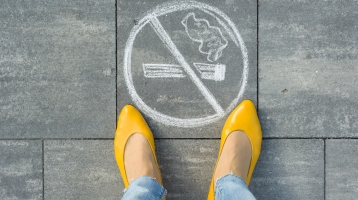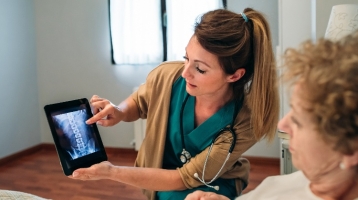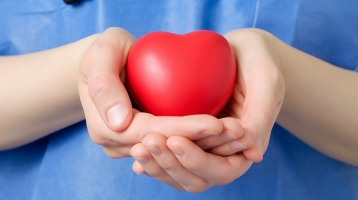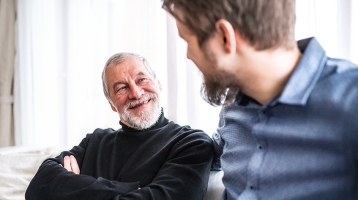Support For You
You’re a cancer survivor now. Your cancer treatments are over, including frequent visits to the cancer center and the consistent check-ins with your cancer care team. You might feel a little bit “on your own” after treatment is over and you may be wondering, “Now what?”
You may feel excited and grateful, but also may feel anxious or scared. That’s entirely normal! Every survivor is different and every survivor’s life circumstances are different. Transitioning back to a “normal” life can take a little time and some help. Often, your cancer care team will spend time helping you with the next steps. Whether you have professional help or not, here are some steps to take after cancer treatment is over.
Get a Follow-Up Care Plan
After cancer treatment ends, you’ll see your cancer doctors less often. But, you’ll still need to see them for follow-up care. You will work with your cancer care providers to set and understand milestones and follow-up appointments that need to happen after your treatments are complete. They can also help you understand what to expect, one of the biggest sources of anxiety for survivors is fear of recurrence. Knowing that you have a comprehensive follow-up care plan in place will help alleviate this fear.
Get Organized
Since you may see your cancer-care team less frequently, you’ll once again rely more often on doctors outside of oncology for your routine medical needs. It is important that all of your doctors are well-informed about the type of cancer you had and how your cancer was treated. Because cancer treatments may cause side effects that show up months or years after treatment ends, your doctors need to know what to watch for. Make sure you have detailed copies of your personal health records you can share with your doctors.
Get Emotional Support
You may be familiar with cancer patient support, but did you know it’s also available for survivors? No one understands how you’re feeling like other survivors who have walked a similar path. Cancer survivor support groups are safe spaces to discuss struggles, worries, and emotions that are common after treatment ends.
Any major life change can be a bit scary. It’s normal that you may fear this transition from cancer patient to cancer survivor, and Virginia Oncology Associates wants to ensure that you are getting the help you need to transition into your new cancer survivor role.














